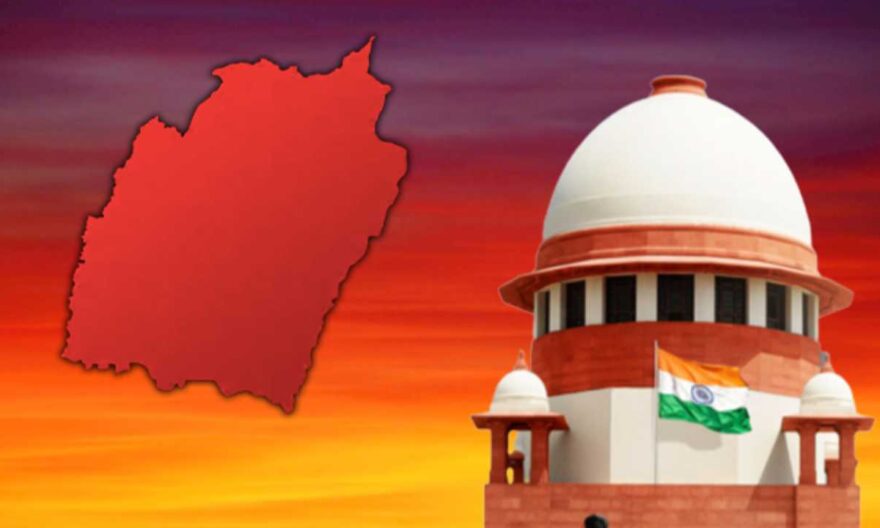
The Supreme Court stated on Monday that the proceedings related to the violence in Manipur should not be utilized as a means to exacerbate violence or generate additional issues.
A bench led by Chief Justice of India DY Chandrachud stressed the importance of addressing the matter from a humanitarian standpoint while acknowledging the Court’s limitations in handling security and law and order matters.
“We do not want these proceedings to be used as a platform for further escalations of violence and other problems. We must be conscious that we are not running security or law and order. This is a humanitarian issue and needs to be looked at from that angle. Keeping in mind these facets we will hear the case tomorrow,” the CJI stated.
The Top Court was hearing multiple pleas concerning the ongoing violence between the Meitei and Kuki communities in Manipur, cautioned against using the proceedings to fuel further violence or complications.
Solicitor General of India (SGI) Tushar Mehta described the situation in Manipur as “constantly evolving” and presented a status report detailing the Central government’s efforts to restore normalcy in the state.
Senior Advocate Colin Gonsalves, representing the Tribal Forum, expressed concerns about the severity of the situation, stating that the number of reported deaths had risen to 110, contrary to the earlier statement by SG Mehta indicating only 10 deaths.
The Chief Justice of India (CJI) stressed the need to approach the matter without skepticism and requested Gonsalves to provide specific suggestions during the next hearing.
Gonsalves highlighted the importance of apprehending the assailants, while SG Mehta emphasized the significance of understanding the ongoing situation and its underlying causes. The CJI drew attention to the seizure of weapons from police stations and directed the Chief Secretary of Manipur to submit a status report on the actions taken in this regard.
Gonsalves pointed out that the violence was instigated by banned terrorist groups under the Unlawful Activities (Prevention) Act (UAPA). The CJI reminded all parties that the Court’s role was that of a legal forum and should not encroach upon the responsibilities of the elected government.
Last week, the State government assured the Supreme Court that an updated status report detailing the measures taken to control the violence would be filed. One of the pleas included an interlocutory application (IA) filed by the Manipur Tribal Forum, alleging that the Central government’s assurances to the Court regarding its handling of the issue were false. The Forum sought the deployment of the Army in tribal areas to control the situation and requested directions for the safe return of Manipuri Tribals to their residences under a security escort.
In response, the State government assured the Apex Court on May 8 that it would address concerns related to the ongoing violence and take proactive remedial measures. The Court had emphasized the need for adequate arrangements in relief camps, rehabilitation of displaced persons, and protection of places of religious worship.
Later, the Union Home Ministry formed a committee led by former Chief Justice of the Gauhati High Court, Ajay Lamba, to investigate the matter. The Forum contested this arrangement, stating that it was unacceptable as it was done without consulting the tribal groups who are the victims.




